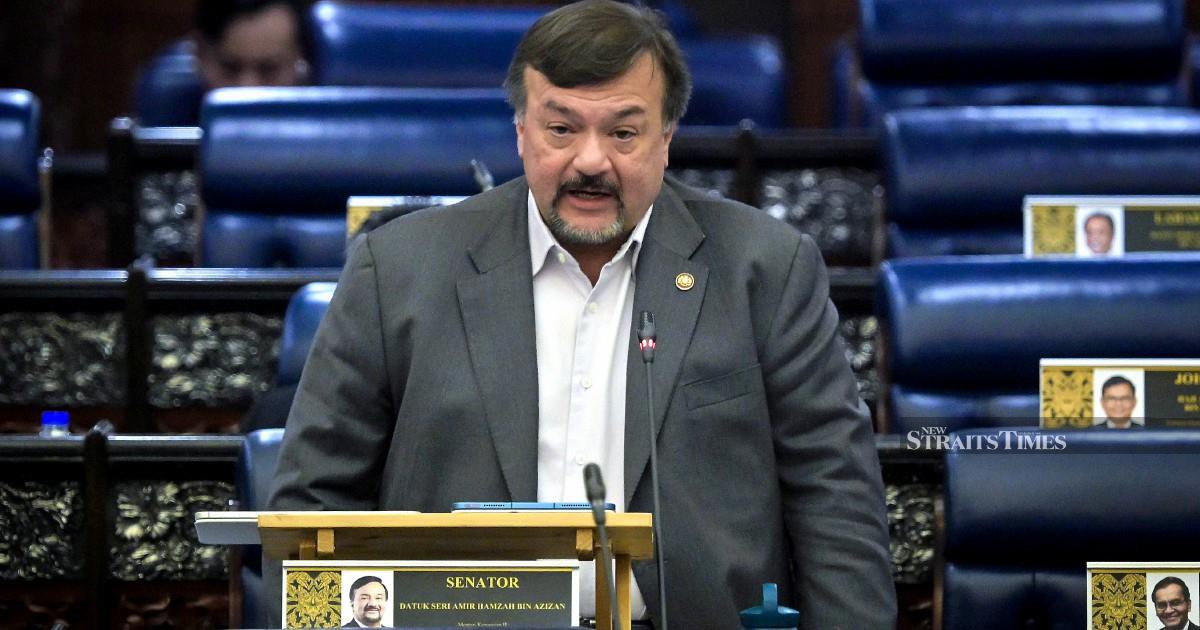KUALA LUMPUR: Development projects will be implemented according to the priorities and needs of the people to ensure inclusive, balanced, and sustainable growth, particularly in the six less-developed states.
Acting Economy Minister Datuk Seri Amir Hamzah Azizan told the Dewan Rakyat that these six states would receive allocations totalling RM679.11 million in 2026.
“At the national level, these six states have been allocated RM20 billion, compared with RM19 billion in 2025. The focus will be on high-impact projects such as infrastructure, talent development, and the expansion of industrial zones,” he said while winding up the Supply Bill 2026 at the committee stage today.
He added that the government’s efforts aim to narrow the development gap between rural and urban areas, with an increase in Basic Development Expenditure (DE) to ensure direct benefits for the people.
“To ensure that these priorities are addressed effectively, the prime minister personally visited all states to receive their wish lists, and more than 90 per cent of the proposals were prioritised in Rolling Plan 1 (RP1). This reflects the government’s commitment to ensuring that national planning is not centralised, but incorporates feedback from the states,” he said.
Amir Hamzah said the 2026 Development Estimates allocation of RM83 billion focused on raising Basic DE to RM57.6 billion, up from RM55.7 billion in 2025.
The number of approved new Basic Development projects has increased from 1,967 in 2025 to 2,371, aimed at enhancing the well-being of the people.
According to the 2026 Budget, the Economy Ministry’s development allocation stands at RM2.115 billion — an increase of RM890.56 million or 72.7 per cent compared with the previous year.
For poverty eradication efforts, a total of RM100 million has been allocated for the implementation of the People’s Income Initiative (IPR) in 2026.
Meanwhile, the ministry is conducting an Impact Assessment of the Corridor Authorities (PBK) to review their roles, functions, and governance structures. The assessment is expected to be completed in the first quarter of next year.
“The PBK’s role will be more focused on facilitating and realising investments within the economic corridor regions, in line with the aspirations of the National Investment Council. As of Oct 31, 2025, PBK has recorded RM87.56 billion in investments, creating 108,243 jobs,” he said.
Amir Hamzah added that based on 2025 analysis, Malaysia is projected to achieve 49 per cent of its Sustainable Development Goals (SDG) targets by 2030, surpassing the global average of 18 per cent.
“Despite this encouraging performance, cross-sectoral issues remain that must be addressed collaboratively. Under the Empowering Sustainable Development Goals Implementation Programme, emphasis will be placed on strengthening capacity building, communication, education, and public awareness to accelerate national SDG progress,” he said.
On the Statistics Bill, Amir Hamzah said that the Legal Adviser’s Office of the Economy Ministry was reviewing the draft.
Meanwhile, the Department of Statistics Malaysia (DOSM) conducted zonal engagement sessions between September and October 2025, as recommended by the Attorney-General’s Chambers.
“A Cabinet Memorandum is expected to be presented at the cabinet meeting in December,” he added.
Wan Ahmad Fayhsal Wan Ahmad Kamal (PN-Machang) suggested that the ministry and the Bumiputera Agenda Steering Unit (Teraju) placed greater emphasis on involving more young Bumiputera in the electrical and electronics (E&E) and semiconductor sectors, possibly through matching grants, scholarships, or loans — not only with local universities but also with institutions in Taiwan.
Amir Hamzah said the ministry would continue to explore areas for improvement.
© New Straits Times Press (M) Bhd






